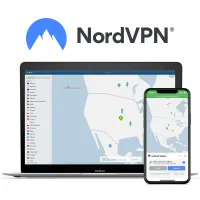Why are VPN companies trying to do everything now?
From password managers to cyber insurance, how come VPNs are turning into full-blown security suites?

Ten years ago, the best VPNs were just that – VPNs. Fast-forward to today, though, and you’ll see almost all the top providers offering a vast range of products. From adblockers and password managers to cloud storage and even cyber insurance, we’re already well into the age of all-in-one privacy and security suites, but is it really what the people want?
There has long been a debate between those who prefer to use a wide range of best-in-breed software and others who like to have everything they need in one place. However, with VPNs, the real issue arises because this goes well beyond convenience.
Entrusting your personal privacy to any company – whether it’s a single product or a massive suite – requires a huge level of trust, and there are many compelling arguments for both staying within an ecosystem and using several standalone products.
I’m going to explore exactly why the all-in-one suite is booming right now, whether it’s actually what the market demands, and why it may – or may not – be the right choice for you.

I've been in charge of Tom's Guide's VPN articles since 2020, and in that time I've helped test and review over 100 VPN providers for both Tom's Guide and TechRadar. I strongly believe that privacy, price, and ease of use all go hand in hand to make the very best products.
NordVPN is one of the leading providers that's "trying to do everything," and it does a lot of it very well. However, even if you're only looking for a VPN, it offers the best mix of quality and value. Starting at $3.39 per month, it's very affordable, and you can try it out for a month with its 30-day money-back guarantee.
The rise of the all-in-one security suite
Software suites are nothing new. Microsoft Office, Adobe Creative Cloud, and even Google's productivity suite are integral parts of daily life for millions of people, but when it comes to privacy and security, things have traditionally been more piecemeal. You might have chosen Avast to provide your antivirus, Proton Mail for your email, ExpressVPN for your VPN, and pCloud for your cloud storage.
However, as we barrelled into the 2020s, the big players in VPN began to take on the competition. Proton AG is an excellent example, and in fact, its VPN product, Proton VPN, was launched three years after its flagship product, Proton Mail.
Now, though, the VPN is just as well known, and the consolidated Proton suite includes Proton Drive, Proton Calendar, Proton Pass, and SimpleLogin. Just this week, on April 10, Proton announced it had acquired the encrypted note-taking app Standard Notes to add to its roster.
NordVPN has done the same, with NordPass, NordLocker, NordLayer, cyber insurance, and e-sim service Saily, as has PureVPN, with PureKeep, PureDome, and PureEncrypt. A greater prevalence of VPN suites was one of my predictions for 2024, and the list of examples goes on. Suffice to say, plenty of VPNs are diversifying quickly, each looking to be your one-stop shop for everything privacy.
As something of a moon-tanned basement dweller myself, I spend a lot of time on my computer and phone and can tell you from experience that having an ecosystem of software that "just works" is a joy. However, the alternative to this is using best-of-breed software in every situation, regardless of provider, and there’s a compelling argument for doing this – you make no sacrifices. So, is the rise of the all-in-one suite leading us down a rabbit hole of complacency?

To suite or not to suite
Let’s look at an example. The Surfshark One package bundles the VPN with an antivirus, a private search engine, and data breach alerts. It tested fairly well in our review, earning three and a half stars, but it simply can’t match the decades of engineering that have gone into established AV names like Norton, Avast, and Kaspersky. If you’re looking for the gold standard, this ain’t it, chief.
On the other hand, few people are as engaged or as informed as those likely to read this article. Many people download a VPN to watch geo-restricted sports events or get around ISP blocks, and the privacy benefits are simply an added extra.
These people are unlikely to have or be in the process of considering any dedicated privacy tools, so being handed a suite of products is an easy entry to better online protection, even though that protection might not be class-leading. In my book, that’s a win.
What’s more, there’s a privacy benefit to choosing a suite from a VPN provider in the first place. By signing up for the VPN, you presumably trust it to protect every bit of data you send through its servers. By extension, you’d like to think you could trust every product in its lineup. One company, one set of personal data.
The alternative – signing up for lots of different products – means you’re handing over your data multiple times to different recipients. It could be argued that this is a poor choice and that dispersing your data more widely puts you more at risk than keeping it all under one roof. Personally, I don't consider this significant, but it has to be considered nonetheless.
Do people actually want security suites?
The short answer is that if people weren’t paying for and using these products, VPN providers wouldn’t be developing them. Of course, it’s all grist to the marketing mill, but successful brands are savvy and certainly don't throw money down the drain.
NordVPN, for example, is a multi-billion dollar enterprise, and has the money to fund passion projects. However, just this year, the Nord-owned Atlas VPN was shuttered and users were funneled into the main brand. If NordPass or NordLocker weren't proving to be profitable, you can bet your bottom dollar they'd see the same ruthless fate.
I've spoken to the founders of NordVPN about this rapid expansion, and they claim that the numbers really back it up. The more products you have, the more audiences you can cater for. Then there's just the final step of convincing them it's worth buying a bundle plan that's not much more expensive than a single product.
Bottom line
It’s easy to see why VPN companies are branching out – people buy the product because using a suite is easy, and that generates lots and lots of lovely money. I don’t expect this to slow down any time soon, and for the most part, I think it’s a net positive. More people with easier access to tools that help protect them online, saving money in the process.
However, if you’re in the market, I’d definitely recommend you exercise caution when signing up for a security and privacy suite. Read reviews of each product that’s included, and don’t make sacrifices in areas that are essential to you. Once you’ve made your decision you can sit back and bask in the beauty of a cohesive ecosystem, because, yes, life really is suite.
We test and review VPN services in the context of legal recreational uses. For example:
1. Accessing a service from another country (subject to the terms and conditions of that service).
2. Protecting your online security and strengthening your online privacy when abroad.
We do not support or condone the illegal or malicious use of VPN services. Consuming pirated content that is paid-for is neither endorsed nor approved by Future Publishing.
Get instant access to breaking news, the hottest reviews, great deals and helpful tips.

Mo has been rigorously testing, reviewing, and analyzing VPN services at Tom’s Guide for more than five years. He heads up the three-person Tom's Guide VPN team, and is passionate about accessibility: he believes that online privacy should be an option that’s available to everyone. NordVPN and ExpressVPN are the products he uses most on a daily basis, but he experiments weekly with all the top services, evaluating their privacy features, connection speeds across various protocols, and server reliability – among other things – so that he can make confident VPN recommendations that are backed by data. To see his latest advice, head over to Tom’s Guide’s best VPN and best free VPN guides.
 Club Benefits
Club Benefits






